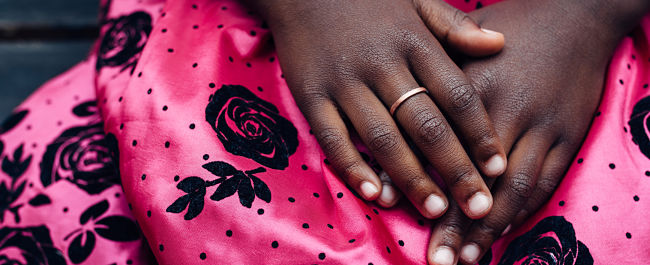‘Refugee and Asylum-Seeking Women’s Advocate’ - a new professional role to combat sexual violence?

Sexual gender-based violence is a global phenomenon that takes different forms in different contexts, but always reflects the unequal power and different roles that states, societies and cultures entrust to women and men due to their sex at birth.
About the research
Together with colleagues in Italy, Greece and Spain, the Centre for Gender and Violence Research at the University of Bristol interviewed professionals working with refugee and asylum-seeking women in the UK to find out what sexual violence the women had experienced, and how we could better encourage women to disclose violence and seek help.
The project defined such violence as including physical, psychological and sexual violence - for instance sexual abuse in relationships, forced prostitution and sexual exploitation, domestic violence, survival sex, human trafficking and violence, and female genital mutilation. The research took place during 2016-2018 as part of an EU-funded project, ‘Addressing Sexual Violence Against Refugee and Asylum-Seeking Women’.
Policy implications
The need for specialist advocacy is all the more acute for Refugee and Asylum-Seeking (RAS) women. A new professional advocacy role is needed in the UK at the local level to support RAS women.
The Advocate’s job would be to consult with, empower and represent the particular interests of RAS women. They would provide 1:1 advice and support to women including on:
• legal rights, immigration status, housing and benefits rights, domestic and sexual violence services;
• support through any criminal or family justice process;
• therapeutic and counselling help;
• refugee/asylum, language or culture-specific services (e.g. trafficking or female genital mutilation (FGM) support, refugee or asylum-seeker groups, language/interpretation services).
How the role might work
Ideally this RAS Women’s Advocate role would be a new service, funded by central and/or local government under similar arrangements to existing Independent Domestic and Sexual Violence Advocate (IDVA and ISVA) services, with RAS Women’s Advocates available across the country. However, other models of implementation might also work:
Implementation Model 1: The Advocate role is added to the Government’s National Statement of Expectations for domestic abuse provision, with new RAS Women’s Advocate posts created locally across the country, commissioned from new government funds (e.g. via the Domestic Violence Bill in 2019).
Implementation Model 2: Designate some existing IDVA and ISVA posts to be specialist ‘RAS Women’s Advocates’. Train these advocates in RAS women’s needs, giving them a specific remit to work with RAS women, build links with key professionals including the formal immigration and asylum system, and create additional local referral and care pathways.
Implementation Model 3: The Advocate role is not linked to one particular service, but is a ‘moveable hat’ which can be taken up by professionals in different services based on which is most appropriate locally. Agencies could agree in local forums who would have named responsibility for the role, and they could form a network of RAS Champions.
Key findings: the need for specialist advocacy
The research found that refugee and asylum-seeking (RAS) women can, and sometimes do, access existing advocacy. However, many RAS women are not using such support currently. Professionals across a range of disciplines lack confidence to identify and ask about sexual gender-based violence experiences. In particular:
•RAS women need more overall support than is currently offered through the existing advocacy posts such as Independent Domestic or Sexual Violence Advisors (IDVAs and ISVAs).
•Currently, professionals across a range of disciplines report struggling to identify and engage RAS women around violence and abuse.
•RAS women often experience multiple abuses - in their country of origin, during transit, in the UK.
•They usually have specific needs relating to their multiple experiences of violence and exploitation: they often need help with language and cultural barriers.
•Many are extremely vulnerable due to their immigration status, and lack other social and family networks for protection and support.
•As well as having multiple, complex needs and having suffered great trauma, these women are frequently the most vulnerable and the most invisible.
These findings are explained in more detail on the project website.
Policy Briefing 59: June 2018
Policy Briefing 59 June 2018 RAS womens advocate (PDF, 560kB)
Contact the researchers
Dr Lis Bates, University of Bristol
Dr Geetanjali Gangoli, University of Bristol
Authors
Dr Lis Bates and Dr Geetanjali Gangoli, University of Bristol


The Addressing Sexual Violence Against Refugee Women project is funded by the Rights, Equality and Citizenship (REC) Programme of the European Union.